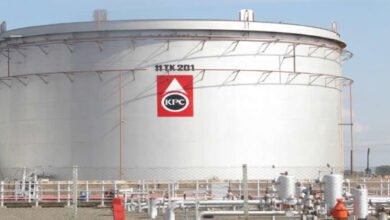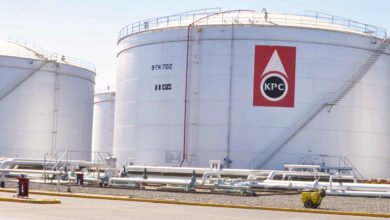
Five contenders are set to battle it out for the presidency of the African Development Bank (AfDB) on Thursday during the lender’s annual meetings in Abidjan, Côte d’Ivoire.
The AfDB, with a capital base of $318 billion, has become increasingly vital to Africa’s development amid shifting dynamics in global finance. Rising borrowing costs, declining aid flows from wealthy nations, and dwindling concessional funding have intensified the need for African-led solutions and resource mobilization.
The new president will succeed Dr. Akinwumi Adesina, who has led the bank since 2015. Adesina, a former Nigerian agriculture minister, is concluding his second and final five-year term. His leadership has been marked by glorious infrastructure financing, climate action, and a push for food security through initiatives like “Feed Africa.”
Here’s a look at the five candidates vying to take the helm:
Bajabulile Swazi Tshabalala – South Africa
A seasoned banker with over 30 years of experience, Tshabalala served as AfDB’s Senior Vice President until October 2024 and is the only female candidate in the race.
She has pledged to reshape the bank’s internal structure, arguing that the current setup lacks the sustained focus needed to drive effective delivery, particularly in infrastructure.
“Infrastructure, if done right, unlocks Africa’s potential—from minerals to trade to finance,” she said.
Tshabalala wants to build on the AfDB’s recent innovation in hybrid capital instruments to create new financial tools that support growth across the continent.
Amadou Hott – Senegal
The former Senegalese economy minister brings decades of experience in global finance, having worked in financial hubs from Lagos to London. Hott is campaigning on a platform of African financial self-reliance.
“Revenue mobilization is number one,” he said, emphasizing that Africa’s average tax-to-GDP ratio of 16%—far below the OECD’s 34%—must improve to boost creditworthiness and attract investment.
Also Read: AfDB Funding in Limbo as Trump Proposes $555 Million in Aid Cut
He believes better project design, risk mitigation, and keeping private capital within the continent are key to unlocking growth in sectors like energy and infrastructure.
Samuel Munzele Maimbo – Zambia
Currently on leave from his role as Vice President at the World Bank, Maimbo brings over 30 years in development finance. His vision includes enhancing intra-African trade and financial integration.
“Only 15% of Africa’s trade is intra-continental. That must change,” he said.
Maimbo aims to overhaul regulatory and data systems to improve trade flows, revenue collection, and infrastructure financing. He enjoys backing from regional blocs like SADC and COMESA.
Sidi Ould Tah – Mauritania
Mauritania’s former finance minister and current head of the Arab Bank for Economic Development in Africa (BADEA), Ould Tah is focused on asserting Africa’s economic sovereignty.
His four-point agenda includes:
- Broadening access to capital
- Reforming financial systems
- Formalizing the informal sector, which employs 83% of Africans
- Building climate-resilient infrastructure
“We can turn every $1 into $10 through smart partnerships,” he said, referencing collaboration with private investors and regional lenders.
Abbas Mahamat Tolli – Chad
Tolli brings a robust background from Central Africa, having served as Chad’s finance minister, governor of the regional central bank, and head of the Development Bank of Central African States.
He advocates for self-sufficiency—particularly in agriculture—and tighter governance to prevent financial leakage.
“Africa loses too much through fiscal evasion and mismanagement,” he said, pushing for better public finance systems and digitized financing tools.
Tolli also shared his personal journey—from tending goats after fleeing civil war at age six, to now aiming to lead the continent’s premier development institution.






Great line up. We will be linking to this great article on our site. Keep up the good writing.
I visited a lot of website but I think this one holds something special in it in it
This web site is really a walk-through for all of the info you wanted about this and didn’t know who to ask. Glimpse here, and you’ll definitely discover it.
Some truly interesting points you have written.Aided me a lot, just what I was searching for : D.
I really appreciate this post. I’ve been looking all over for this! Thank goodness I found it on Bing. You’ve made my day! Thanks again!
Very interesting subject, regards for posting.